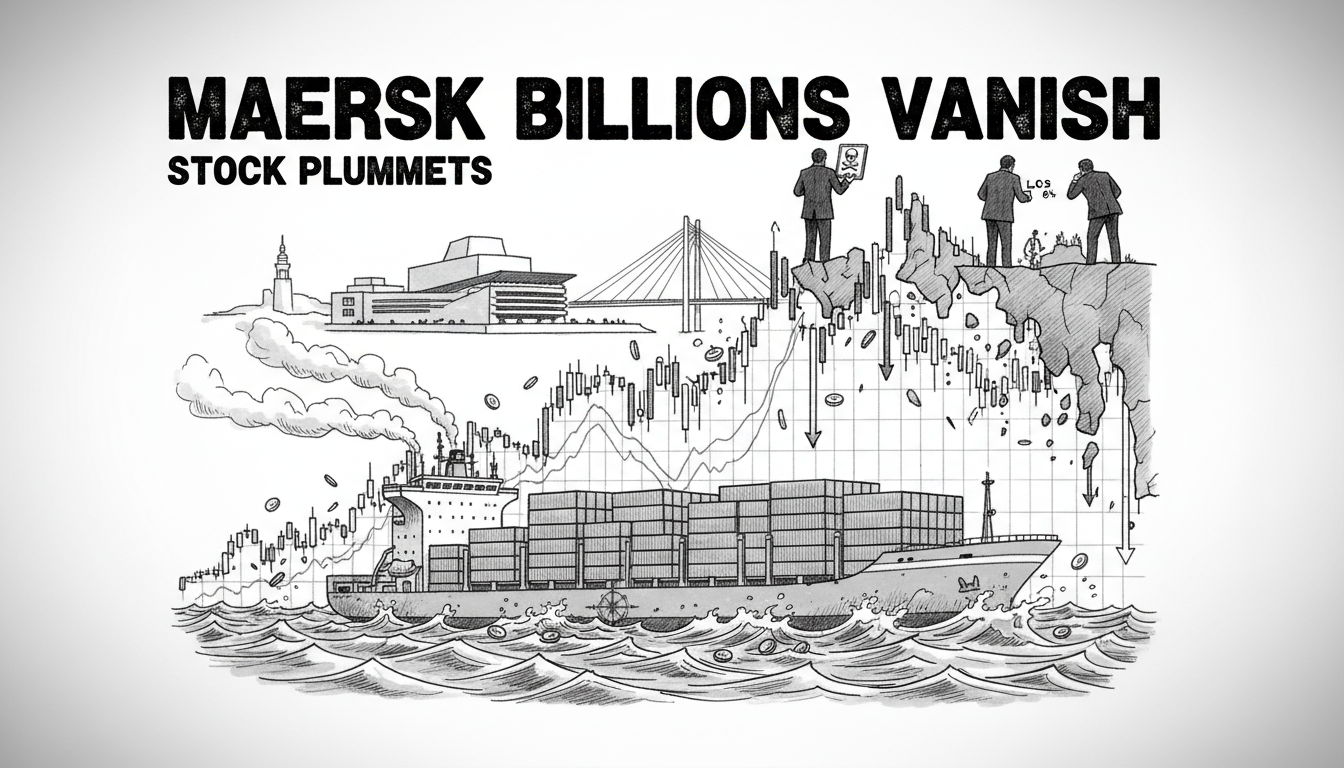Danish shipping giant Maersk faced a dramatic stock plunge on Thursday morning. The company's shares dropped over 6 percent on the Copenhagen Stock Exchange. This sharp decline followed the release of Maersk's third-quarter financial results.
The stock price fell to negative 6.30 percent just before 10 AM local time. Investors reacted strongly to the quarterly report that showed disappointing performance. The shipping conglomerate's market value decreased by billions of Danish kroner within hours.
Maersk's financial performance reflects broader challenges in global shipping. The company operates one of the world's largest container shipping fleets. Global trade patterns have shifted significantly in recent years. Many shipping companies face pressure from changing consumer demand and economic uncertainty.
This isn't the first time Maersk has experienced significant stock volatility. The company's performance often serves as a barometer for global trade health. When Maersk shares drop sharply, it typically signals concerns about international commerce. The current decline suggests investors worry about slowing global economic activity.
What does this mean for Denmark's economy? Maersk remains one of Denmark's most important companies. It employs thousands of workers directly and supports many more through its supply chain. The company's performance affects pension funds, local businesses, and national economic indicators. A sustained downturn could impact Denmark's overall economic outlook.
The shipping industry faces multiple challenges simultaneously. Companies must navigate environmental regulations, fuel cost fluctuations, and changing trade routes. Maersk has invested heavily in green shipping technology, but these transitions require substantial capital. The current market reaction suggests investors question whether these investments will deliver sufficient returns.
International readers should understand Maersk's global significance. The company handles approximately one-fifth of the world's container shipping. Its performance affects global supply chains and consumer goods prices. When Maersk struggles, businesses worldwide may face higher shipping costs and longer delivery times.
The immediate future looks challenging for Maersk and the shipping sector. Companies must adapt to reduced demand while managing operational costs. Industry analysts will watch closely to see if this downturn represents a temporary correction or a longer-term trend. The coming months will reveal whether Maersk can stabilize its position in the volatile global market.

